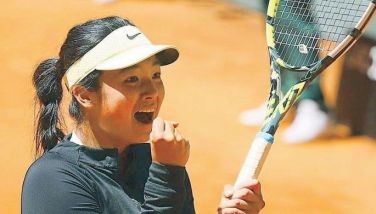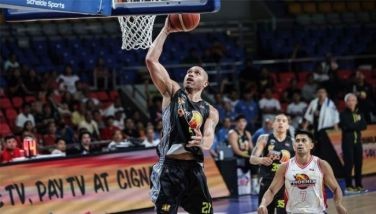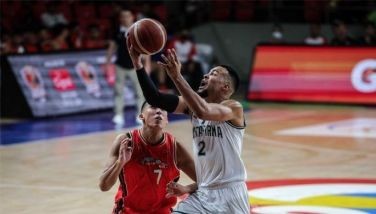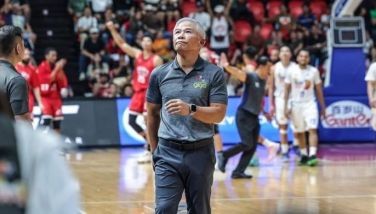Why Team Philippines is winning
Team Philippines built up quite a head of steam at the start of the 30th Southeast Asian Games. The host country shows very little sign of slowing down going into the last three days of the biennial event. What is impressive is not only the volume of its victories, but that the victories thus far have been clear of controversy. Let’s look at the factors influencing this gigantic outpouring of excellence.
Proper funding and travel. The STAR has previously revealed that the Philippine Sports Commission spent over P1.3 billion for the training of athletes, coaches, trainers, sports medicine practitioners and the like. But the fact is that when the current administration assumed office, President Duterte instructed PAGCOR to correct a misinterpretation of the National Sports Development Fund (NSDF) Law. This misinterpretation (on purpose) had been depriving the PSC of roughly half its funding since 1992, even after the Department of Justice had rendered an opinion that it was wrong way back in 1996. Now that the athletes have gotten their full due, they are generating the results.
Inspiration. When you see your sports idols like Paeng Nepomuceno, Lydia de Vega, Onyok Velasco, Efren Reyes, Elma Muros and Akiko Thomson parading with you, there is a sense of duty to surpass yourself. More so when you are in familiar surroundings, being cheered on by family, friends and countrymen, people speaking your language. When local broadcasters know only your name even when you don’t finish first, it gives you a lift to go above and beyond your perceived limits.
Overcoming intrigue. As you’ve undoubtedly read, there have been so many political and interpersonal conflicts in many sports in the Philippines, which seems more the norm than the exception. Still, Filipino athletes persevere. Karate gold medalist, Japanese-Filipina Junna Tsukii has been quoted as saying that there has been previously undisclosed friction with a certain coach in her sport. This is a relatively common occurrence, and adversely affects the athletes, particularly in their mental preparations. Personal agendas and conflict often take precedence over athletes’ needs. And yet, they somehow soldier on and triumph.
Scheduling. When you aren’t the host of the SEA Games and you are the best in your sport, there is a chance it may not even be included in the calendar. If you are a threat to win multiple golds, your events may be scheduled back to back to lessen your chances of winning them all. But when you are the host, you have the luxury of the best possible schedule, convenient practice times, shortest travel to and from venues, and adequate rest. It makes all the difference.
Filipino sports. Arnis brought the Philippines in its largest medal haul in SEA Games history. There is a set number of events in arnis, allowing organizers a lot of latitude in determining the number of medals to be staked. Traditionally, the Filipino stick-fighting sport is only played when the country hosts the Games. It will be interesting to see if PEKAF can lobby for it to become a regular SEA Games sport, unlike Indonesia’s martial art tarung derajat, which has similarly only been played in their hosting. Other Filipino favorites like basketball also add to the gold haul.
Emerging sports. Filipinos are known to be quick studies, whether it be in technology or any other new trends. Sports like variations of mixed martial arts, skateboarding, floorball and even 3x3 basketball have been a literal goldmine for the country in the Games. They also serve as a warning to other ASEAN nations that the Philippines is already a power in young sports.
Modifications. The rules of certain sports evolve over time, and some countries can take advantage of these modifications, while others can’t. When the Philippines staged the SEA Games in 2005, dancesport still followed the global practice of having only one gold medal for the combined five Latin dances, and only one gold medal for all combined five Standard dances. In fact, thanks to the strong program in Cebu, the Philippines swept both golds even before the Games formally opened back then. In the succeeding SEAG in Thailand in 2007, the rules were changed to allot one gold per dance, suddenly giving the hosts the chance to rack up 10 gold medals for the same events. Well, since turnabout is fair play, the Philippines now benefits from that modification.
Extreme hospitality. I know. The words “extreme” and “hospitality” don’t normally go together. But how else can you describe the welcome Filipinos give visitors? This disarming culture can take some of the competitive edge off and foster camaraderie, and also make losing less painful.
When you compete in arguably the most welcoming nation on the planet, in the middle of the longest Christmas season in the world, every victory is shared. And at the end of it all, everyone wants to enjoy the party.
- Latest
- Trending































